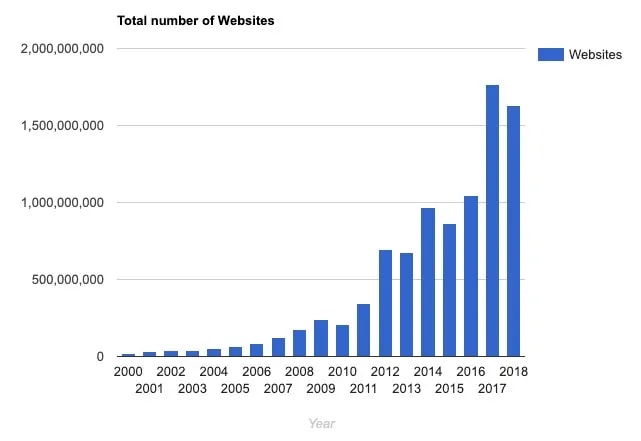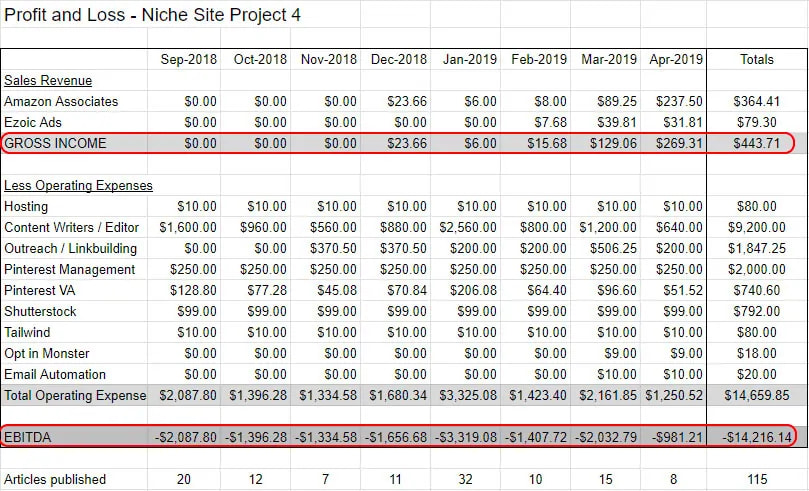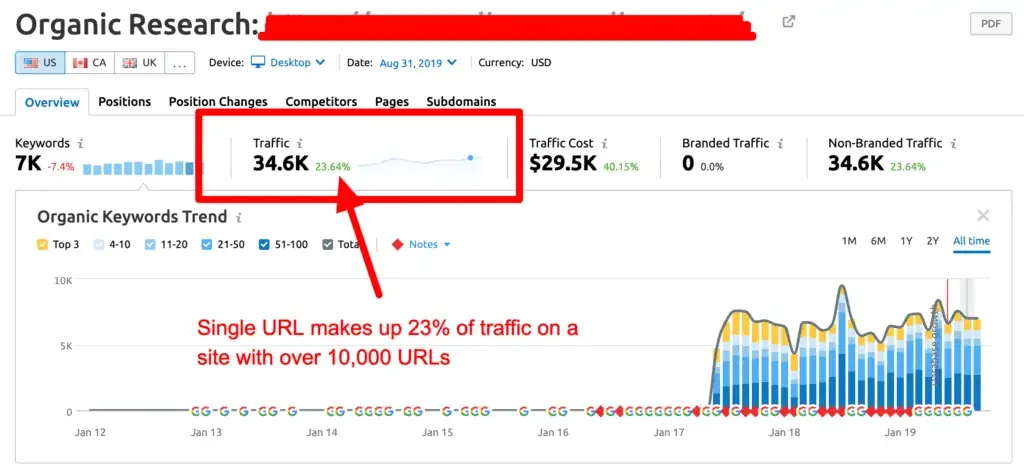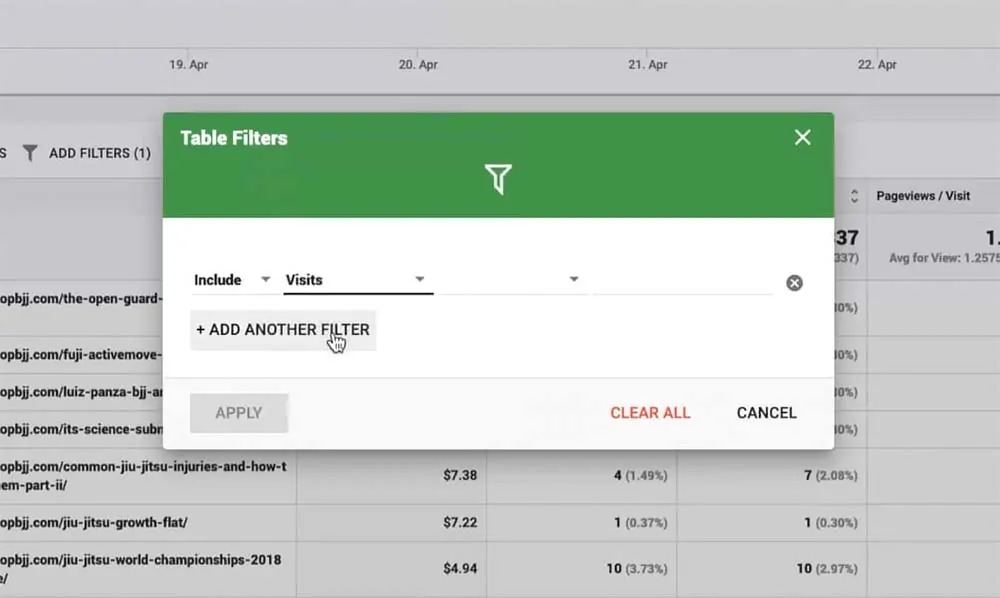How Niche Website Owners Feel About The Future of Publishing
Ten years ago, starting a niche website on a topic that you were passionate about could have delivered untold dividends today. You could write about anything you were passionate about, and if there were others out there seeking this information, you might have been in for a windfall of profit. But as the publishing landscape grows more complex, is this dream still alive?
A recent guest on our blog shared how they’ve been able to start and grow niche sites into businesses earning over $1,000 per month in less than a year multiple times. But, is it as easy as it was 5 years ago? How about 10? What about 20?

Aside from the complexity of needing to worry about mobile interfaces, site speed, government regulations, ad technology, SEO, and more, the internet is well on its way to having over 2 billion live websites. This means the landscape is both more competitive and more complex than it has ever been.
From 2008 to 2018, there was an 845.99% increase in the number of sites. If you were starting a niche site in 2008, just relying purely on mathematics, you had far less competition than in the current landscape.
To get a sense of how niche site owners feel about this growing complexity and how they’re handling it, I took to Twitter to ask niche website owners what they think of the state of digital publishing and gathered top strategies from sites across the web.
Will it be easier or harder to run a website in the future?
In 3 years, do you expect it to be easier or harder to manage, grow, and maintain a website, blog, or publishing property?
— Ezoic (@ezoic) August 13, 2019
The majority of respondents said, “harder,” which isn’t necessarily a surprise. As I mentioned earlier, things are getting increasingly more complex and competitive. I would imagine this sentiment resonates with niche site owners. The people who responded “the same” probably already have a good grasp of the problems of digital publishing, and for those whos said “easier,” they are the publishers who most likely have building sites down to a science and can monetize them fairly quickly.
Time vs. money when growing a niche website…
In his recent article published on the Ezoic blog, Spencer Haws from NichePursuits, wrote in-depth about how much it costs to start a blog or niche website, where he released the profit from one his sites he was able to grow very quickly.  In under a year, Haws was in the red $14,216.14. Doesn’t that seem like a crazy investment, especially if he continues to earn just 100-200 dollars per month? Of course, but for serial niche site builders like Haws, he will turn this site into a $5,000-$10,000 a month earning site, putting him in the black very quickly if his costs stay the same or shrink over time. Don’t have that kind of money to build a niche site ultra-fast? Don’t worry. The majority of publishers don’t have that kind of money lying around nor have the desire to spend it. That’s why it’s important to pick a niche that you’re often passionate about as well, according to publishers like Shabbir. For those who have the gumption to build their own niche site, but still feel like they aren’t maximizing their monetization potential, there are a lot of free resources on how to do exactly that.
In under a year, Haws was in the red $14,216.14. Doesn’t that seem like a crazy investment, especially if he continues to earn just 100-200 dollars per month? Of course, but for serial niche site builders like Haws, he will turn this site into a $5,000-$10,000 a month earning site, putting him in the black very quickly if his costs stay the same or shrink over time. Don’t have that kind of money to build a niche site ultra-fast? Don’t worry. The majority of publishers don’t have that kind of money lying around nor have the desire to spend it. That’s why it’s important to pick a niche that you’re often passionate about as well, according to publishers like Shabbir. For those who have the gumption to build their own niche site, but still feel like they aren’t maximizing their monetization potential, there are a lot of free resources on how to do exactly that.
What is the hardest thing to manage on a niche website?
Which of these is the hardest to manage on your website or for your publishing business? — Ezoic (@ezoic) August 13, 2019
“How do I get my website to make money?”
50% of respondents in our survey said “monetization” was the hardest aspect of building and growing their niche website. This speaks to both the lack of transparency surrounding monetization in the digital publishing industry and how complex and difficult to understand many of the aspects of online advertising have become.
“What about SEO?”
A lot of niche site owners, whether or not they start with existing SEO knowledge or not, find that SEO knowledge is fairly easy to develop. If you create a lot of your own content, you typically want to maximize your time and efforts.
There are tons of great resources and tools designed to help you simplify SEO, like our SEO writing guide. Independent publishers will typically find this sort of expertise one of the easiest to acquire personally.
There are thousands of free resources online to help you create a foundation of SEO knowledge without spending a dime. As your site grows, you most likely will be solicited by SEO Consultants, Ad Networks, and “Marketers;” almost all of these people offering you SEO help should be avoided entirely.

Why? Because the majority of the times these individuals can’t quantify the results they claim they will provide. This is why the best bet as a publisher is to learn SEO yourself and avoid major pitfalls.
“I’m not very technically savvy…”
Development, hosting, and site speed all sort of falls into the realm of infrastructure. If you’re running a website, even if you’re not a tech savant, you can most likely still navigate the basics of website creation and hosting fairly easily.
The smaller percentage of respondents for this poll option suggests that publishers feel it’s not the hardest thing they do; although many still don’t feel like they are ever “experts”.

Modern CMS systems like WordPress make doing basic site speed an infrastructure development fairly easy for most publishers to manage.
“Am I wasting my time with this content?”
Content creation is definitely higher up and more difficult than SEO and development because publishers might feel that it’s a struggle to come up with good ideas, or ideas that will ultimately generate good quality traffic long-term.
In fact, one of the biggest risks I often see is publishers that don’t realize that the vast majority of their traffic and revenue is coming from a single URL, keyword, or article.

This is a risk that many publishers are aware of, and it is one of the reasons why content creation is such a point of concern for many.
Here are some resources associated with some of the most fundamental questions around content creation:
- How do I create better content?
- How do I optimize my content for what people are searching for?
- How do I create content that people actually want to consume?
What upcoming change are you most concerned about in 2020?
What are you most worried about in digital publishing today?
— Ezoic (@ezoic) August 13, 2019
This poll result was a bit surprising. People chose “privacy regulations,” and the way I translate this is they are most concerned about is cookie tracking, and perhaps their ability to get useful data from things as simple as Google Analytics. If browsers start disallowing things like 3rd party scripts on a page. For example, if you didn’t have Google Analytics or any analytics to track visitor data, it could hinder your ability to understand what’s working, what’s not, the ability to monetize things directly could be grossly affected by that as well

That’s why Ezoic’s Big Data Analytics is so valuable because analytics that sits at the DNS-level and doesn’t rely on loading a script on the page itself. These concerns are fairly valid because privacy regulations, in general, can impact and disrupt a lot of the things that publishers are doing. That said, privacy regulations aren’t going to negatively impact the value that publishers bring to advertisers. It doesn’t really matter how targeting is done.
If you have an audience, advertisers will want to reach them. Regulations around tracking may ultimately be something that increases the value of publishers in the overall ecosystem.
What about Google’s (frequent) algorithm changes?
Changes Google makes was only 20% of what niche website owners were worried about in the future which was surprising to me. Google has shuttered so many businesses over the years simply with algorithm changes and policy changes. Perhaps the polling audience feels like they have been able to navigate Google’s changes smoothly so far and don’t fear it as much as unknown risks.
What work do niche websites typically outsource?
How many things do you outsource on websites that you manage, own, or are actively working on? (someone outside your business does them and you have no direct controls) — Ezoic (@ezoic) August 13, 2019
We covered this earlier, but to summarize the four points most niche site owners might outsource are:
- SEO
- Development/Site Infrastructure
- Content Creation
- Monetization
The takeaway should be is that outsourcing all or even some of these items takes some degree of control out of your hands. This is good when you understand what needs to be accomplished and can position someone to scale your efforts, but can be a major risk if you’re unsure of what is needed.
For example outsourcing “SEO” to someone without an understanding of what that looks like can be a recipe for disaster. This is how many sites have found themselves spending lots of money on wasteful practices like site audits and potentially harmful backlinks being added.
How do niche sites plan to manage in the future?
The good news for niche site owners is that there are a number of tools that are emerging to help publishers like build, grow, and automate complex tasks.
There was a time that commonly used tools, like Yoast or Ezoic, didn’t exist. As the future of publishing grows more complex, there will be more and more incentive for the emergence of technologies that build transparency and simplicity into the way that publishers manage this growing number of responsibilities.
What tools do you use to grow your site? Let us know in the comments.
Some additional related articles that might help:


